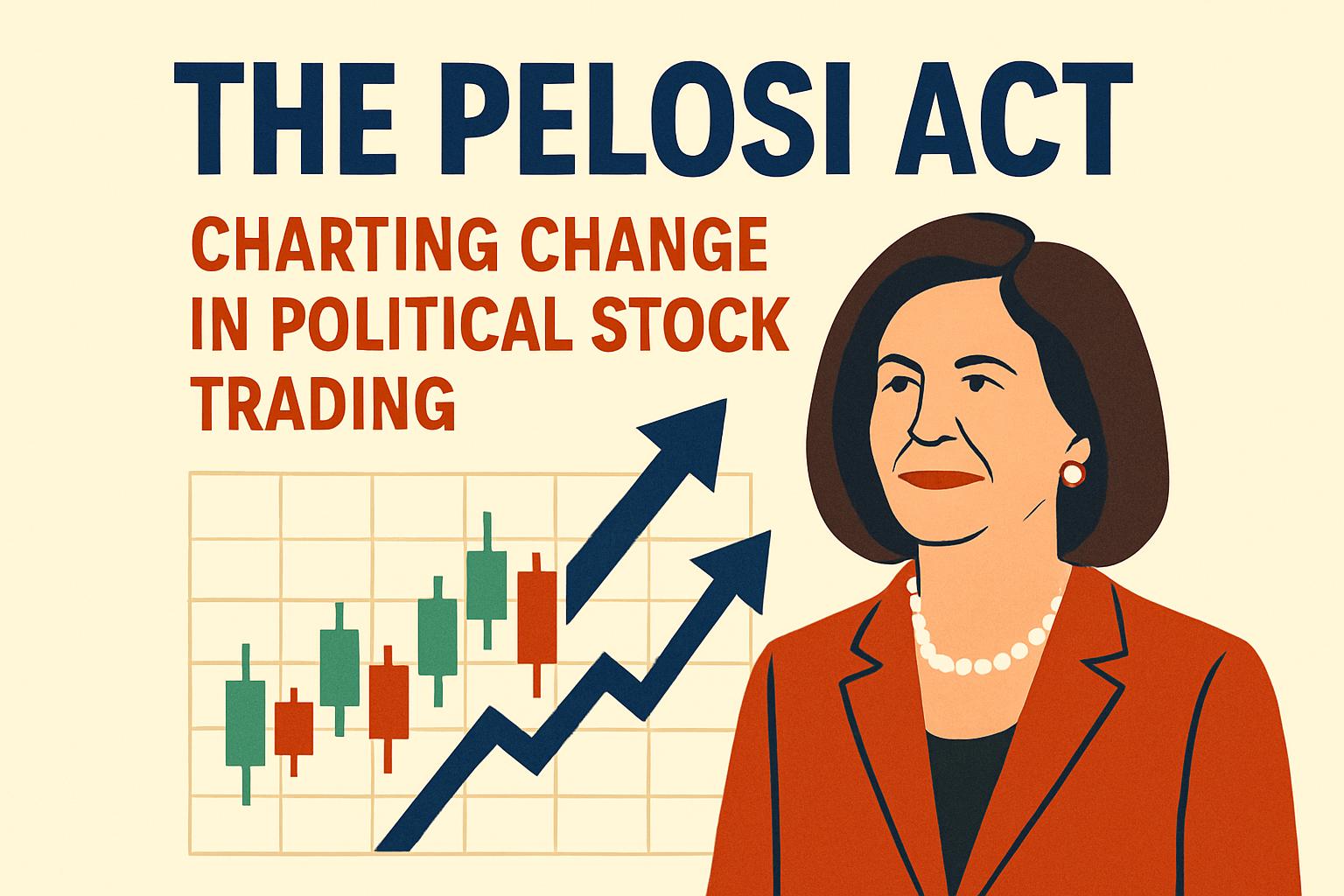The recent passage of the PELOSI Act in the U.S. Senate marks a historic attempt to curb stock trading by elected officials, including the President and Vice President. While the legislation’s name touches on a whimsical nod to its high-profile target, Democratic Representative Nancy Pelosi, its implications carry significant weight for transparency and public trust in government.
The bill, proposed by Republican Senator Josh Hawley, aims to prevent members of Congress and their spouses from trading stocks, a move that sparked considerable debate. Critics say it unfairly targets specific individuals like Pelosi, who despite never being proven for insider trading, has seen her wealth amass significantly while serving in political office. Her financial gains have been a focal point of scrutiny, with opponents suggesting it’s either through sheer investing brilliance or questionable ethics.
The journey to passing this legislation has been riddled with political friction. While Democrats expressed concerns over its initial exclusion of then-President Trump and Vice President JD Vance—dismissed as a ‘Trump Pardon Clause’—the provision was later adjusted to cover future executives, leading to a narrow 8-7 passage through the Senate.
The Spotlight on Pelosi
The White House, leveraging this policy debate, refocused criticism on Pelosi. They highlighted the disparity between her congressional salary of $174,000 and a net worth rising well into hundreds of millions, emphasizing a nearly 70% return on her 2024 investment portfolio. “She’s either got insider knowledge or is the greatest investor of our time,” critics quipped.
However, Pelosi has staunchly defended herself, distancing from these allegations by reiterating her enduring support for the bill. Through interviews, she clarified her detachment from her husband’s financial dealings and emphasized her zero-stock-ownership status, aiming to reassure the public of her integrity.
Additional reports on her strategic trades, such as shares in Nvidia and Apple, fan the flames of speculation amidst this political saga.
A Baby Step Towards Reform
The legislation symbolizes a fledgling stride toward addressing public demands for less corruption and more integrity in office. It hints at the broader tension between political ambitions and reformist ideals. Despite this milestone, whether such a framework can gain traction in the House of Representatives and its broader applicability to government officials remains to be seen.
As advocacy for transparency strengthens, the pressure mounts on political figures to choose between self-interest and the collective betterment of governance. Voters watch closely, hoping for a shift from political self-preservation to accountability and ethical stewardship.

![[News] Bitcoin at a Turning Point? 10x Research Signals a Bullish Macro Shift Ahead](https://cryptoexplores.com/wp-content/uploads/2025/06/new20250616.jpg)
![[News] Binance Lists $HOME, the Gas-Free, Bridge-Free All-in-One DeFi App](https://cryptoexplores.com/wp-content/uploads/2025/06/news20250617.jpg)